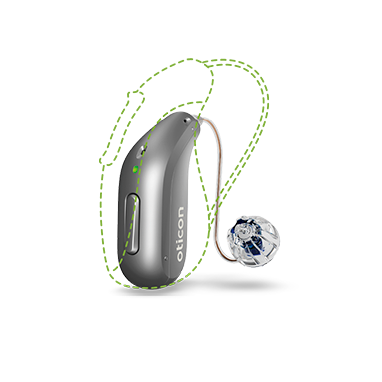Your Guide To Hearing Aid Success
Regain Your Hearing With My Guide to Success With Hearing Aids
Independent Provider of Hearing Aids In Scotland Since 1997
Recognising and dealing with the signs of hearing loss.
This is your guide to recognising a hearing loss and then achieving success with hearing aids. This information has been put together as the result of a study to learn what causes a person to use their hearing aids successfully.


From this study, I have isolated the five principles listed below which are the underlying factors of success with hearing aids.
These five steps will help you to overcome your hearing loss and lead to success with your hearing aids.
STEP: 1
Admit that l have a hearing problem
By now, you may have had your hearing professionally tested and have been told that you have a permanent hearing problem. You currently have two choices:
Denial or acceptance. It is normal for most people to go through a period of denial. What is sad is that most people wait five-to-seven years before solving their hearing problems. A person in denial uses a typical thought process.
- “I hear fine; it’s just that people mumble; they don’t speak clearly anymore.”
- “It’s the noisy places where I have trouble hearing…I’ll just avoid those places, and I’ll be OK.”
- “I hear what I need to hear. I’ll just ask them to repeat.”
- “I can cope with it. I’ll just concentrate harder.”
The reality is, you cannot hide your hearing loss. It’s more obvious than any pair of hearing aids. Your associates, clients, friends and family already know that you have it. You can push the fact out of your mind, but you are only fooling yourself. You can decide to try and conceal your problem, but the symptoms have already given your secret away.
- You give the wrong answers to questions.
- You confuse similar words, like “bathroom” and “vacuum”, “cat”, and “pat” “peach” and “teach”
- You turn up the TV too loud for people with normal hearing.
- When listening in company, you have started asking others to repeat what they have said.
The first step to overcoming your hearing problem is admitting to yourself….
- That your hearing problem is affecting the quality of your life.
- That there is no surgery that will correct sensorineural hearing loss.
- That your friends, family, clients and associates already know you have a problem hearing.
- That the only positive choice you have is hearing aids.
STEP: 2
Decide to seek help with a positive attitude
It is not only the purchase of hearing aids that will give you better hearing. Four characteristics that are present in all people who are really successful with their hearing aids are:
- Positive attitude.
- Willingness to learn.
- Use your hearing aids regularly.
- Patience, while your brain re-tunes to ambient sounds and noises.
Hearing aids may not bring you instant gratification. To achieve better hearing, you may have to work at it daily. The ability to hear again can be relearned. It may take a few days, or it may take a week or two. The most successful hearing aid users will gladly tell you their time spent in practice with a patient, willing and positive attitude was the most crucial step to achieving success.

The decision to have a good attitude about going through the process to improve your hearing must be yours, not that of your spouse, son or daughter. We cannot make this commitment for you; it is your choice and your choice alone. An enlightened man once remarked that “most people are about as happy as they make up their minds to be.” And as you embark on the process of better hearing, a cheerful, positive attitude will not only affect your success but will be an encouragement to everyone around you.
STEP: 3
Learn about my hearing problem
Because you haven’t heard normal sounds and noises properly for a long time, at first, the sounds amplified by your hearing aids may be unusual. But, this is because you are hearing the high-frequency speech sounds (like f’s s’s and th’s.); you have been missing or have heard differently for years. These sounds will actually improve your speech comprehension, but only if you stick with your new hearing aids until your brain has a chance to adjust. And with practice and time, your brain will adapt. Hearing and understanding involve more than the hearing organ. Your hearing is a complex function that requires the cooperation of the brain and your other senses as understanding occurs in your brain, not in your ears.
- After a time of not hearing, the brain will need a period of time to become familiarised with the high-frequency sounds of speech again.
- When you begin using hearing aids, your brain may make little use of the new sound information for a day or two, then gradually it will start to use it and you will be well on your way to achieving listening delight.

STEP: 4
Set Realistic Expectations
If your hearing was lost suddenly or, has been lost over time, you might not hear again like you once did with normal hearing. Like dentures, hearing aids are only a substitute for the original – with them; you will probably live a near-normal life; without them, you will undoubtedly be handicapped.
Focus on your improvement. You will be achieving a significant percentage of improvement over how you would hear without hearing aids. Your ‘hearing aids’ job is to help you hear better, not perfectly, although, with recent technological advances, perfection may not be too far away!
The soft, sharp sounds you hear are normal. These are the soft, high-frequency sounds you have been missing. Your hearing aids are giving these sounds back to you. These are the sounds that will let you better understand speech.

Certain electronic adjustments may be made step-by-step over a week or two by me to help your brain gradually become used to normal listening levels again.
Hearing aids may not give instant gratification; it could take a few days or a week or two but stick with it, and you will achieve listening delight.
STEP: 5
Practice And Patience: Your Two Keys to Success
There is a common discipline followed by all men and women who are successful with anything they put their mind to. It is called practice. It is no different being successful using hearing aids. It is an investment that will cost you time and patience; however, it will usually begin to pay dividends within as little as a few days.
I wish you well, and thank you for reading.
Best Regards,
Colin Forrest.

Providing Hearing Aids since 1997 I pride myself on providing the very latest digital hearing aids from the worlds leading manufacturers at prices up to 50% less than is charged (on a like for like basis) by the high street hearing aid retailers.
Contact me for expert hearing aid advice and unbeatable prices in Scotland.
Call me today on 01506 420519
Try Hearing Aids Before You Buy
No Obligation trial allows you to be completely sure about your purchase before making it.




